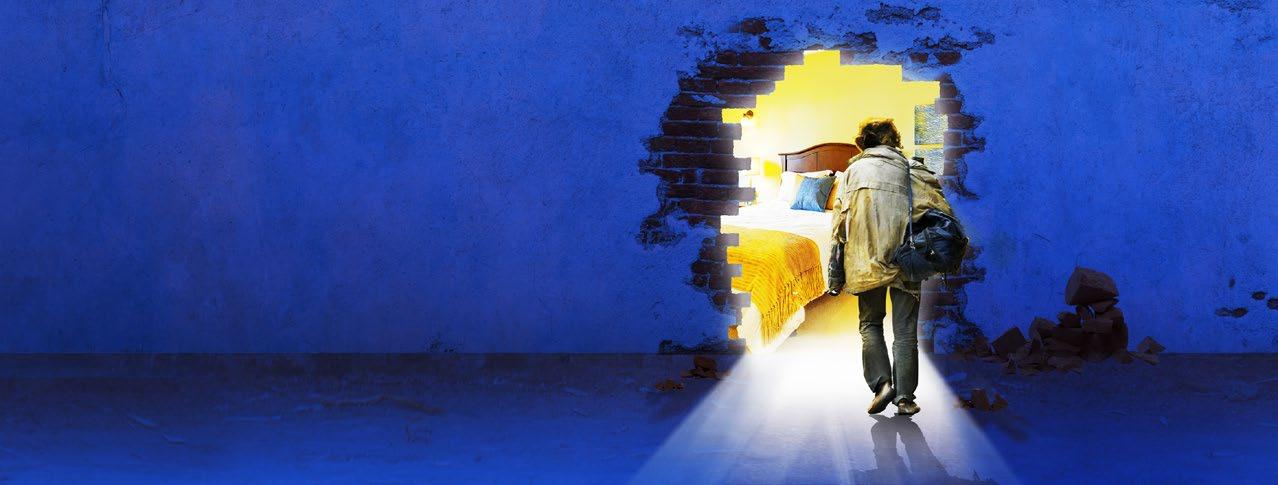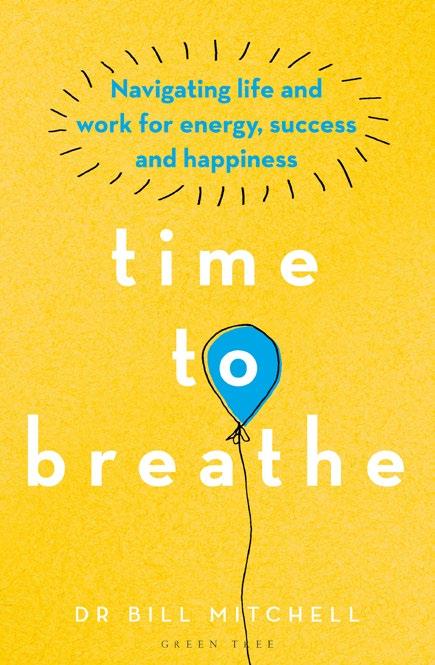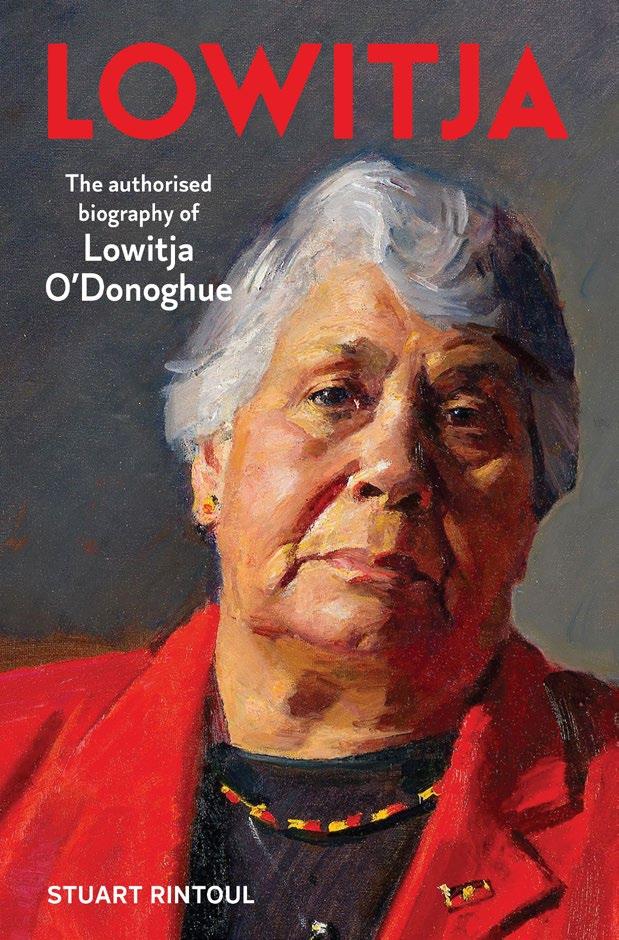
9 minute read
Veterans health and welfare: information insights
A collaborative partnership between the Department of Veterans’ Affairs and the Australian Institute of Health and Welfare
Advertisement
The Department of Veterans’ Affairs (DVA) and the Australian Institute of Health and Welfare (AIHW) have established a strategic partnership; working together to build a knowledge base that supports the health and wellbeing of Australia’s veterans across a range of areas. Since 2016, the work undertaken by DVA and the AIHW has taken a coordinated, whole-of-population approach to monitoring and reporting on the status and needs of veterans and their families. During this time, the AIHW has released a number of publications on veterans’ health and welfare, including the flagship report Australia’s health 2020. This report contains a chapter on the health of serving and ex-serving Australian Defence Force personnel (people who are currently serving or have previously served at least 1 day in a regular capacity or as a member of the active or inactive reserves). The report found, in general, just over half of people who had ever served in the ADF assessed themselves to be in excellent or good health, which is very similar to Australians that did not serve. Currently, women make up 19% of the ADF workforce. Participation has been increasing, but the relatively low numbers constrain accurate reporting on the health of women who currently or previously served. DVA and the AIHW continue to increase the range of data available about veterans, and collaborate on how best to describe the information. Targeted research aims to bridge the gaps in knowledge on veterans to better understand current needs, anticipate emerging needs, and improve the services that best support those needs. Work is also underway to build a more comprehensive profile of the welfare of Australia’s veterans, as well as their families. As outlined in the AIHW’s A profile of Australia’s Veterans 2018 report; previous research efforts have been primarily health focused. With AIHW and DVA broadening its scope on wellbeing, research will also look to address key information gaps in the areas of education, employment, justice, housing, safety, finance and social support.

For more information, visit www.dva.gov.au or www.aihw.gov.au.
Bravery Trust’s new Chairman
Bravery Trust is a national military charity that provides financial aid, financial counselling, and education support to injured veterans and their families who are in financial hardship.
Bravery Trust’s new Chairman, Garth Callender, a former Army Major, had a distinguished seventeenyear career, during which he served in Iraq and Afghanistan and was badly wounded in a bomb attack in Baghdad in 2004. Garth wrote the awardwinning book, After the Blast, which chronicles the events of his deployments that make them anything but ordinary. Garth motivates and inspires with tales of surviving a bomb attack, through to chasing insurgent bomb-makers in Afghanistan. We interview Garth about his aspirations as Chairman of Bravery Trust.
About Bravery Trust: Since 2012, Bravery Trust have helped over 5,000 veterans and their families, with more than $5.5M in financial aid. The Bravery Trust team work with the individual, their family and their support networks to find a solution that works, both for the short term and long term – including financial counselling to help veterans and their families with understanding and managing their debt and preventing additional financial distress.

You have an extensive military service background, including in combat, intelligence, training and strategic roles for more than 20 years, what does “service” mean to you?
The concept of ‘service’ is what leads many of us into the military, and it is often what we seek in our careers afterwards. It is about playing a part that’s bigger than your individual self. I believe it is an innate drive in us to make the world better in whatever way we can, big or small. It is one of the reasons I am so excited about taking up this new position – I can continue to serve.
After being badly injured in Baghdad, and your mother making the Chief of the Army promise that you would not go back into combat, what drove you to defy your mum’s orders?
Occasionally in your life you come to the realisation that, regardless of your personal circumstances, there is a time and place to put your hand up. When questioned as to why I volunteered to return, my answer was always – I was the right person for the job. I had been to the war-torn city before, seen it at its worst, and survived. Who better understood the environment my 110-person combat team was going into; who better understood the risks; who else had intimate experience with the weapons being used against us; and who best understood what we needed to know to survive and thrive in Baghdad?
Every transition is unique, what advice would you give those going through their own transition?
Prepare, plan and get help with your transition – do not leave your career to chance. Gain an understanding of the industry you want to work in and try to envisage where you see yourself in five years. Get upskilled and educated if needed, and use the resources available as part of your transition. Most importantly, network! Reach out to people you know who have already transitioned. Ask for help and talk to them about their experiences and ask for introductions to others who may assist you in your journey. As veterans, we are on our way to having the strongest alumni in the country – use it to find your career path and then become part of it to assist others do the same.
You have held numerous leadership roles, including establishing the NSW Veterans Employment Program, which throughout your time, employed over 500 veterans, what leadership qualities are important to you?
Emotional intelligence matched with professional competence. To be a good leader you must be able to understand yourself and empathically influence others, all while having a solid understanding of the role you, your team and your stakeholders play. The great part of this is that these are the skills and attitudes the military builds and values in their leaders.
Working with Bravery Trust for the last few years as an ambassador and now as Chairman, what are you excited about in 2021?
I am excited about being more involved in the discussions around what it is to be a veteran, and the place veterans hold in Australian society. Working to shape how veterans see themselves and working with others to help develop solutions for those who are at risk of slipping through the cracks.
You are known to many in the Defence and Veteran community – what is something that we may not know about you?
I grew up in suburban Sydney, about 30km from the nearest beach. When I met my wife, a Gold Coast girl, she taught me how to surf. Now the ocean and surfing are a constant in our lives. I find the ocean grounding and therapeutic, and surfing challenging and exhilarating. I encourage others to find what it is in life that always makes them smile.
The St Vincent de Paul Society has been providing a ‘hand up’ to people in need in Australia for over 150 years, and this last year has been no different.

Despite 2020’s incredibly trying circumstances Vinnies has continued to help those in need. Members, volunteers and employees worked tirelessly to ensure that everyone was able to receive the assistance they needed in a year like no other. Last year began with devastating bushfires blazing through the region, with local Vinnies groups springing into action to assist those forced into chaos. Vinnies Bushfire Appeal funds were provided to individuals to help cover accommodation, food, transport, or rebuilding. Funds continue to be distributed in the form of community grants, ensuring local communities play a role in rebuilding their own region. As the year progressed, the effects of COVID-19 became apparent as many people already in difficult situations were faced with further job losses, and often a change in service delivery. Despite the challenges the restrictions brought, Vinnies ensured companions were safe and supported. Face to face interactions were reduced as help went to online and over the phone, energy bills were paid digitally, and gift vouchers replaced physical goods. Although Vinnies resources were stretched, the dedication of volunteer members, and community connections ensured that support continued. When circumstances shift, it disproportionately affects those experiencing hardship. Last year taught everyone the extent to which times are fragile and why it is crucial to ensure that disadvantaged people are not further separated from society. Thanks to help from the community, Vinnies will continue to provide invaluable support to those needing it most. This year, Vinnies is launching a new campaign to further engage the public in the work of the organisation. Run throughout March, Vinnies Knock On Effect will demonstrate the impact volunteers and donors have on improving opportunities for people experiencing disadvantage. To get involved or to learn more, visit www.KnockOnEffect.org.au.
To get involved or donate, or if you need assistance please call 13 18 12.
YOUR IMPACT WILL OPEN DOORS TO HOPE
For those without a safe place to sleep, every donation has a knock on effect to help people find shelter and comfort when they need it most.

Donate now to unlock his opportunity for a better life

knockoneffect.org.au

AGELESS, The New Science of Getting Older Without Getting Old by Andrew Steele. Published by Bloomsbury.

Time to Breathe by Dr Bill Mitchell. Published by Green Tree. Social connectedness and long-term health conditions


We want to hear about your experiences of living with a long-term health condition and feeling socially connected. We are conducting a project to gain a better understanding of the experiences of feeling socially connected, belonging and loneliness of people living with a long-term health condition (such as asthma, arthritis, obesity, diabetes, chronic pain). We are interested in speaking to people who are over 18 years of age and have been diagnosed with a long-term physical health condition and who would like to share their story. If you are interested in taking part, we would like to interview you for about an hour about your experiences of health, social relationships and supports. We will ask to interview you on another two occasions in the next 6 months. The interviews will take place at a time and place convenient to you, either in person, by telephone or via video (e.g. Zoom). In recognition of your time, you will receive a $30 gift voucher for each interview.
If you would like more information or are interested in being part of the study, please contact: Dr Maja Moensted m.moensted@unsw.edu.au 0405 976 187 (02) 9385 6946
This study has been funded by the Australian Research Council and approved by the University of New South Wales Human Research Ethics Committee.










